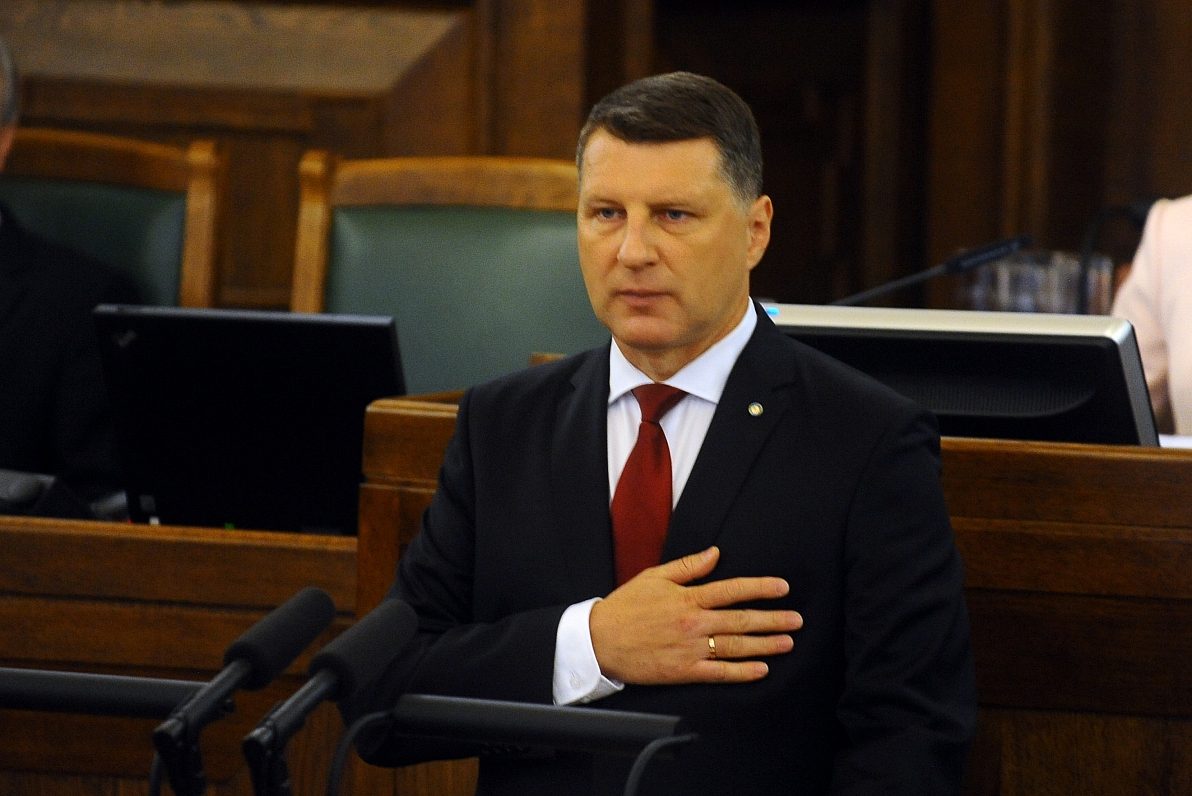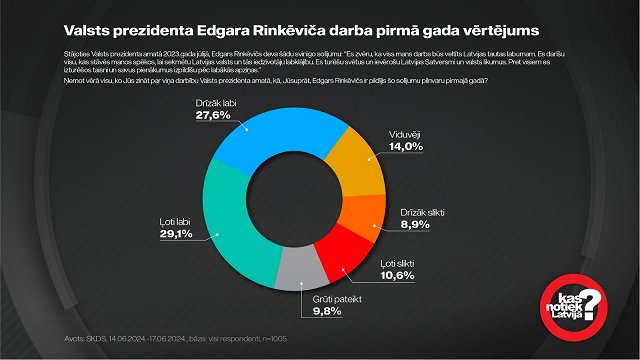Vejonis calls for directly elected president with the power to sack the parliament
Vejonis said that Latvia's people have been dissatisfied with decision making in high places and the way the state is run.
It could be improved, he claimed, by expanding the executive powers of the president and the prime minister.
"It could be done if the Saeima approved the Prime Minister but his ministers would be approved by the president. Likewise, the president should have the authority to call for snap elections and not only announce a popular vote for sacking the Saeima," he said.
"Such an expansion of presidential powers would require that the head of state be elected by the public, in a direct election," argued the president.
He urged MPs to ensure that the 2019 presidential election would be held by popular vote.
The idea for a direct presidential election has been floating around for some time but never found real political backing. Constitutional changes require a two-thirds majority of the 100 elected lawmakers.
Currently the Saeima elects the president in a secret ballot with deputies under no obligation to declare or explain their preferences to their voters.
The system has thrown up numerous surprises over the years and has resulted in several fairly obscure figures finding themselves in possession of Riga Castle.
However Latvia's NGO Delna, which has campaigned for president to be elected in an open parliamentary ballot, on June 22 said the president's proposal amounts to "pulling the wool over people’s eyes", reported LETA.
Delna on June 2 submitted to the Saeima the public petition attempting to change the parliamentary ballot for electing president of Latvia.
President will propose legislation ending non-citizens' status for newborns
Vejonis also used the meeting to remind MPs of his initiative to make Latvia cease granting non-citizens' status to children born in the country.
"Children born into non-citizen families are our children too. Every child is important and meaningful to Latvia. We're strong enough not to be afraid of little children and say once and for all that they're ours!" he said.
He told the Saeima he will propose legislation to Saeima to give automatic Latvian citizenship to all born in Latvia.
Context
Last year 52 children were given the status of 'non-citizen' according to Latvia's Citizenship and Migration Affairs Office. Children born to non-citizen parents after August 21, 1991 are entitled to citizenship upon request of at least one of the parents.
"In the fall session of the Saeima I will propose a law initiative. It will give the chance for kids born in Latvia to non-citizens to become Latvian citizens when they're born unless their parents choose the citizenship of another existing country," said Vejonis.
The changes proposed by the president would amount to putting a stop-timer to end the murky legal status of 'non-citizen' instituted when Latvia regained its independence and currently preventing close to 250,000 Latvian residents, who are largely Soviet-era immigrants, from voting and holding public office.
They can however become citizens via a simple if somewhat time-consuming procedure if they like.
'This should have been a year of reform'
Vejonis also used the closing meeting before Latvia celebrates Midsummer to criticize Latvian lawmakers for their passivity as the government is struggling to implement much-needed reforms.
"This should have been a year of reform. Much was planned and promised but little was done actually," he said.
"We've rested comfortably in our chairs and looked ... at the government trying to achieve the tax reform and changes in healthcare and education that the public need. We've acted as if it doesn't concern us," he said.
He called for the Saeima to support the government and become more actively involved in the upcoming reforms.





























